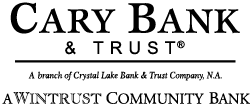Data tokens on this page
How Attorneys and Bankers Can Collaborate for Productive Estate Planning
How Attorneys and Bankers Can Collaborate for Productive Estate Planning
When focusing on your finances, estate planning might not always be at the top of your priority list. It often entails tough conversations, and when it feels far away, can be easy to put off.
But proper estate planning is essential to keep loved ones financially secure in the event of death or incapacitation. With multiple parties involved, however, competing interests and a lack of cooperation can derail the process, potentially jeopardizing your assets.
As attorneys and bankers play two pertinent roles in the estate-planning process, strong collaboration between them is crucial for protecting you, your beneficiaries, and your assets. By synthesizing their respective skills and perspectives, attorneys and bankers can forge a powerful alliance that ensures the protection of assets, minimizes potential conflicts, and ultimately helps clients make their financial and testamentary goals a reality.
The importance of a strong team in the estate planning process cannot be overstated. The following are practical strategies for fostering productive collaboration between attorneys and bankers, exploring how these professionals can work in concert to create a solid foundation for the future and provide peace of mind for their clients.
Start off strong
As with other long-term arrangements, the early stages of estate planning will likely determine the trajectory of the entire process. A strong starting point sets you up for success, while a shaky starting point only complicates things down the line.
Estate planning measures should be initiated at a point in time when everyone involved is willing to come together, in person, as much as possible to ensure clarity and alignment. Though virtual meetings have become ubiquitous in recent years, in-person meetings can make it easier for participants to connect with one another and find common ground, saving everyone from both emotional and financial battles.
And while it’s beneficial for loved ones to be present, the same expectation should apply to the bankers and attorneys involved. When they both commit to being there, better relationships are formed in the long run.
During these initial meetings, transparency is a major key to success. Ulterior motives and undisclosed information will prevent the plan from working in everyone’s favor, and the more complex a family’s situation is, the more crucial it is to put everything out in the open.
According to Mary Ann Korenic, CEO of The Chicago Trust Company, “At that point, this isn’t business; it’s personal. And when the families and attorneys are open to those discussions, those are the best-case scenarios.”
Always be clear
In the same vein as transparency, clarity is crucial in all conversations. Leaving your intent unclear by using vague terms in your estate planning documents is a recipe for disaster — the more direct and straightforward things are, the more efficient the overall process will be.
When there are misunderstandings, things get dragged out and conflict arises. In some cases, this can escalate to litigation, leaving trust assets to potentially be used to cover legal fees and additional unexpected trustee fees — a lose-lose for everyone involved.
To prevent this sour scenario, it helps to ensure that everyone is on the same page from the start. This requires being direct and eliminating assumptions by laying out the facts — something the bankers and attorneys involved should be comfortable with in a professional setting.
“Oftentimes, families don’t want to deal with those difficult conversations about unequal distributions or specific bequests, but we don’t mind being the bad guy,” said Korenic. “That’s part of our job. We’re not enablers; we’re the opposite.”
Keep each other in the know
For better or worse, life is unpredictable. Your family’s situation one day can be totally different the next.
As such, your estate plan needs to change as your life changes. Whether it be divorce, the purchase of a new vacation property, or something else, it’s essential for your partners in the estate planning process to be aware of any changes that arise, big or small, to ensure your documents stay organized and up to date.
“We worked with an attorney who did an excellent job keeping us appraised,” said Korenic of one of her experiences. “Once notified and approved by his client, he would call us and let us know any time one of our client’s high-value assets had been sold. Because one of the biggest challenges we deal with in estate settlement and trust administration is cataloging and collecting assets after someone dies, this attorney was fantastic about ensuring we were aware of what existed and equally important, what no longer existed. This is especially important when it comes to personal property, which families tend to fight over all too often.”
Be reasonable and responsive
With strong communication playing such an integral role in the estate planning process, snail mail won’t cut it. For successful estate planning, all parties need to be attentive and committed to responding to one another in a prompt manner.
“Responsiveness is a two-way street,” said Korenic. “Bankers need to get back to attorneys in a reasonable timeframe and set expectations of responsiveness, cooperation, and meeting halfway instead of being inflexible and uncollaborative.”
Meeting halfway is especially critical. Rather than trying to gain leverage, all parties should aim to be reasonable — especially when it comes to fees.
“Just because a client has a $30 million estate doesn’t mean you can charge $30,000 for the estate plan,” said Korenic. “Complex estates could certainly warrant such a fee, but they might just need the same estate plan as somebody with a $3 million estate, depending on their circumstances. So, it’s important to be very reasonable upfront, and transparent about fees from the start.”
Maximize professional strengths
Bankers and attorneys each bring different strengths to the table. When they work together to gain a comprehensive understanding of a client’s financial assets, goals, and legal considerations, the best outcomes come to light.
The expertise that emerges through this collaborative approach always benefits clients in the long run. Bankers — particularly the team of wealth management professionals within a bank, come equipped with valuable financial strategies, and attorneys can work with bankers to ensure strategies comply with relevant laws and regulations. This extends to taxes, too, where bankers can offer insights into tax-efficient investment approaches, and attorneys can provide guidance on tax laws and implications, though neither should be considered tax experts unless appropriately certified.
“We want to be a good partner to whoever is helping us, and vice versa,” said Korenic. “Collaboration is the key to success.”
Practice empathy
Estate planning can be complicated as it is, but for families, the extra layer of emotion on top of that complication can be a lot. These are challenging conversations; no one wants to focus on a loved one’s death or incapacitation.
During this tough time, attorneys and bankers both need to make empathy a top priority — especially when there’s familial strife involved. Taking the time to evaluate what families are going through and understanding what they need is something that separates the dedicated attorneys and bankers from the subpar; the best professionals are able to go beyond just business and connect with clients as people.
“I like attorneys to have an empathetic nature,” said Korenic. “This business is tough. It’s personal. It’s very litigious; families are fighting. There are people behind all this. There are emotions behind it. There’s a loss behind it. You need to give families time to grieve and go through those processes.”
Deliver executional excellence
Productive collaboration is often made possible by experience. At The Chicago Trust Company, a Wintrust Wealth Management company, our trust officers average over 28 years of experience, ready to answer all your questions and handle large trusts with a bespoke approach. We work closely with you to create a plan that reflects your intentions while mitigating tax consequences, maximizing value, and maintaining privacy.
Across all 50 states, Wintrust offers a broad suite of sophisticated trust and estate services, ranging from guardianships to charitable trusts. Attorneys retain the legal work while our teams focus on trust administration and investment management. Additionally, we collaborate with attorneys to revise plans with existing customers.
Our community-focused team combines the capabilities of a large, national institution with the high-touch service of a local boutique. No account is too small or too large for our experienced team to serve.
Don’t leave the task of securing the financial future of your family to chance. Trust our experienced team to help you through the process.
Securities, insurance products, financial planning, and investment management services offered through Wintrust Investments, LLC (Member FINRA/SIPC), founded in 1931. Trust and asset management services offered by The Chicago Trust Company, N.A. and Great Lakes Advisors, LLC, respectively.
Investment products such as stocks, bonds, and mutual funds are:
NOT FDIC INSURED | NOT BANK GUARANTEED | MAY LOSE VALUE | NOT A DEPOSIT | NOT INSURED BY ANY FEDERAL GOVERNMENT AGENCY





